|
|
|
|
|
|
|
|
No Arctic-science events are announced today.
|
Media
United States, Canada Studying Options to Replace Arctic Early Warning Radars. The United States and Canada are beginning to study potential replacements for a jointly operated network of unmanned air defense radars at the top of North America. However, the re-emergence of great power competition could prompt the close allies to develop new missile warning capabilities. The North Warning System consists of a series of 11 long-range AN/FPS-117 radars and 36 short-range AN/FPS-124 systems that together stretch nearly 3,000 miles long and over 14 miles wide from Canada's Newfoundland and Labrador province to Alaska. It was put in place and has been operated and maintained by the North American Aerospace Defense Command since the late 1980s, replacing the Distant Early Warning Line that had been built in the 1950s. National Defense
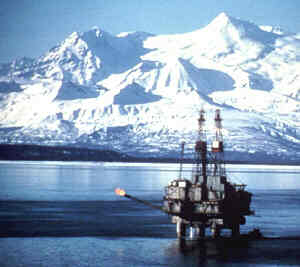 Scientists Study Effects of Oil Spill Dispersants on Arctic Wildlife. Scientists Study Effects of Oil Spill Dispersants on Arctic Wildlife. Scientists are taking a close look at the effects of chemical dispersants on seabirds. These are chemicals used in marine oil spill response to provide an environmental benefit to limit sea surface contamination and to reduce contamination of coastal habitats. However, scientists have incomplete knowledge of the physical effects on seabirds of chemical dispersants and oil treated by the dispersants. Less is known about the effects of dispersants on wildlife in Arctic waters, where residents of coastal communities depend on food gathered from northern seas. Nome Nugget
Did 'The Blob' Heat the Bering Sea Enough to Threaten Your Fish Sticks? You've probably heard about the blob, the pool of warmer-than-normal water that wreaked havoc on fish and wildlife in the North Pacific. But you might not have heard about what's happening in the Bering Sea, at the Pacific's northern limits. After several years of blob-related warmth, water temperatures off much of Alaska's coast have returned to normal. But not in the Bering Sea, where in some places they're still as much as 9 degrees Fahrenheit higher. Alaska Public Radio
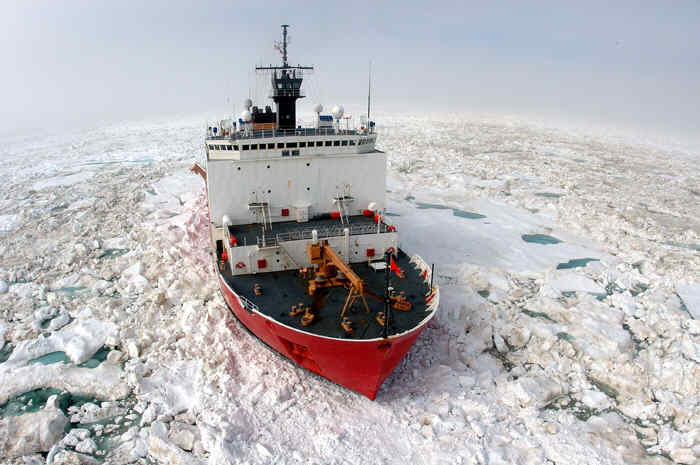 Heavy Polar Icebreaker Questions Mount for Coast Guard. Heavy Polar Icebreaker Questions Mount for Coast Guard. Potential funding woes and questions about the aggressive proposed timelines have cast doubts about the future of the Coast Guard's new heavy polar icebreaker. The Government Accountability Office is dubious the service's lone heavy polar icebreaker can make it to its proposed 2023 retirement date and questioned whether the Coast Guard's construction schedule was too optimistic. Military Times
|
|
Future Events
Seeking Comment: Principles for Conducting Research in the Arctic, July 31, 2018 (Webinar). The Interagency Arctic Research Policy Committee (IARPC) is seeking comment from the public on the draft newly revised Principles for Conducting Research in the Arctic. The Principles are directed at federally-funded researchers, though they may be useful to academic, state, local, and tribal researchers in the Arctic. Attend our listening session on July 31 at 11 AM Alaska / 3 PM Eastern to learn more and submit your comments: here.
More than 750 participants generally register and
participate in each Congress, and more than 400 scientific papers or posters are usually presented.
UArctic Congress 2018, September 3-7, 2018 (Oulu and Helsinki, Finland). The UArctic Congress 2018 will bring together key UArctic meetings and a science conference into one single gathering, including business meetings of the Council of UArctic, Rectors' Forum, Student Forum, and Thematic Networks & UArctic Institutes Leadership Team. The Congress is an integral part of the Finland's Arctic Council chairmanship program, and open to the public. The event will highlight the themes and priorities of the Finnish chairmanship, including the goals of the United Nations' 2030 Agenda for Sustainable Development, and the Paris Agreement under the UN Framework Convention on Climate Change.
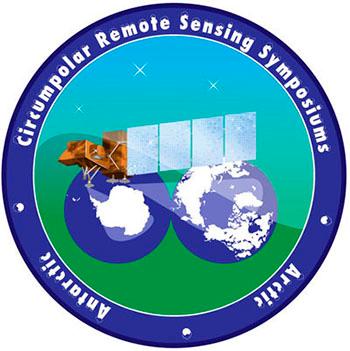
Scientific Exploration of the Arctic and North Pacific (SEA-NorP), September 25-27, 2018 (Mt. Hood, Oregon USA). This workshop will include discussion of hypotheses that can be tested by scientific drilling in the region, the technology necessary to achieve those goals, ideal sites for drilling based on existing data, and where additional site survey data is needed. The goal of the workshop organizers is that multiple proposals will be initiated at the workshop, both for full cruise legs and for shorter, targeted expeditions around the following themes: ocean gateways, geohazards, volatile cycling, ice histories at transition zones, biosphere and climate.
** New this week ** Polar Law Symposium (11th annual), October 2-4, 2018 (Tromsø, Norway). This symposium brings together established scholars and post-doctoral and doctoral researchers from all across the world to share research in the fields of polar law and policy. Leading experts are invited to give keynote lectures. A history of the symposium is here, news about it is here, and registration is here.
The second Arctic Biodiversity Congress is hosted by the Conservation of Arctic Flora and Fauna (CAFF), the biodiversity working group of the Arctic Council, and the Ministry of the Environment, Finland. The second Arctic Biodiversity Congress will build on the success of the first Congress, held in 2014 in Trondheim, Norway, and will bring together scientists, policymakers government officials, Indigenous representatives, Traditional Knowledge holders, industry, non-governmental organizations, and others to promote the conservation and sustainable use of Arctic biodiversity.
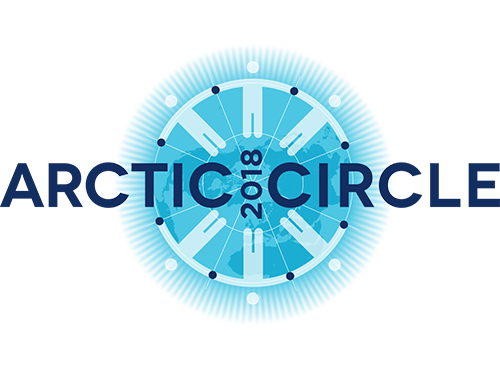 Arctic Circle Assembly, October 2018 (Reykjavik, Iceland). The annual Arctic Circle Assembly is the largest annual international gathering on the Arctic, attended by more than 2000 participants from 60 countries. It is attended by heads of states and governments, ministers, members of parliaments, officials, experts, scientists, entrepreneurs, business leaders, indigenous representatives, environmentalists, students, activists and others from the growing international community of partners and participants interested in the future of the Arctic. Arctic Circle Assembly, October 2018 (Reykjavik, Iceland). The annual Arctic Circle Assembly is the largest annual international gathering on the Arctic, attended by more than 2000 participants from 60 countries. It is attended by heads of states and governments, ministers, members of parliaments, officials, experts, scientists, entrepreneurs, business leaders, indigenous representatives, environmentalists, students, activists and others from the growing international community of partners and participants interested in the future of the Arctic.
Arctic Science Forum Associated with the 2nd Arctic Science Ministerial, October 25, 2018 (Berlin, Germany and via webcast). How vulnerable and how resilient are nature and the people of the Arctic region? How well do we understand the regional and global dynamics which are driving change in the Arctic? What impact will change in the Arctic have on us? These and other questions are the focus of this two-day conference. It will take interdisciplinary research in the Arctic to gain an understanding of past and future processes - a complex and cost-intensive venture. This makes an international network of Arctic research so important for delivering better results. Cooperation in research, the exchange of data, collaborative observation and monitoring schemes - international cooperation is imperative in research on the Arctic. Only the Science Forum on October 25th will be webcast.
American Geophysical Union Fall meeting, December 10-14, 2018 (Washington, DC USA). The AGU 2018 Fall Meeting will mark another dynamic year of discovery in Earth and space science, serve as the advent of AGU's Centennial year, and provide a special opportunity to share our science with world leaders in Washington, D.C. As the largest Earth and space science gathering in the world, the Fall Meeting places you in the center of a global community of scientists drawn from myriad fields of study whose work protects the health and welfare of people worldwide, spurs innovation, and informs decisions that are critical to the sustainability of the Earth.
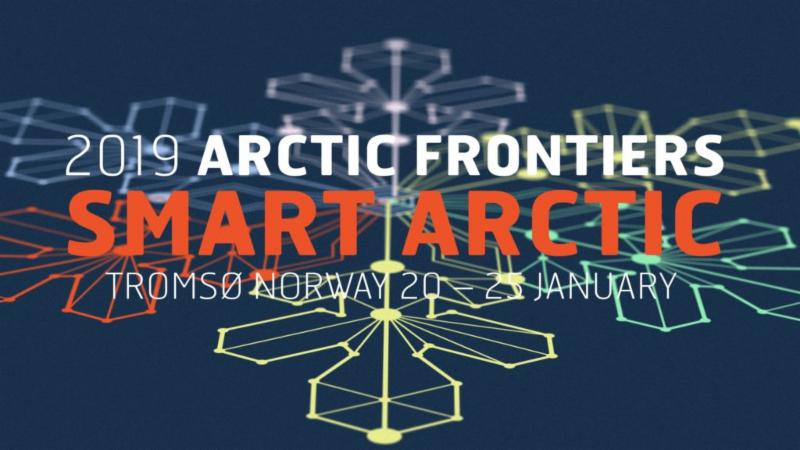 started out in 2006 assembling the first global scientific conference on economic, societal and environmental sustainable growth in the north. In January 2019, the hosts will arrange the 13th conference with the theme "Smart Arctic". The conference has a pan arctic perspective and builds new partnerships across nations, generations and ethnic groups. Arctic Frontiers provides a forum for dialogue and communication between science, government and industry in the Arctic. In 2019, the Arctic Frontiers plenary program will have five main sessions with the following tentative working titles: State of the Arctic, Blue Growth, Smart Solutions, Bridging the gap and Arctic business prospects. Following the plenary, we will organize an abstract driven science program addressing Plastics in the Ocean, the Future of Governance and Handling Vulnerability in Arctic Ecosystems, State of the Arctic and A Smart Arctic Future.
|
|

  
4350 N. Fairfax Drive, Suite 510
Arlington, VA 22203, USA
External links in this publication, and on the USARC's World Wide Web site ( www.arctic.gov) do not constitute endorsement by the US Arctic Research Commission of external Web sites or the information, products or services contained therein. For other than authorized activities, the USARC does not exercise any editorial control over the information you may find at these locations. These links are provided consistent with the stated purpose of this newsletter and the USARC Web site.
|
|
|
|
|
|
|
|
|
 Scientists Study Effects of Oil Spill Dispersants on Arctic Wildlife. Scientists are taking a close look at the effects of chemical dispersants on seabirds. These are chemicals used in marine oil spill response to provide an environmental benefit to limit sea surface contamination and to reduce contamination of coastal habitats. However, scientists have incomplete knowledge of the physical effects on seabirds of chemical dispersants and oil treated by the dispersants. Less is known about the effects of dispersants on wildlife in Arctic waters, where residents of coastal communities depend on food gathered from northern seas. Nome Nugget
Scientists Study Effects of Oil Spill Dispersants on Arctic Wildlife. Scientists are taking a close look at the effects of chemical dispersants on seabirds. These are chemicals used in marine oil spill response to provide an environmental benefit to limit sea surface contamination and to reduce contamination of coastal habitats. However, scientists have incomplete knowledge of the physical effects on seabirds of chemical dispersants and oil treated by the dispersants. Less is known about the effects of dispersants on wildlife in Arctic waters, where residents of coastal communities depend on food gathered from northern seas. Nome Nugget Heavy Polar Icebreaker Questions Mount for Coast Guard. Potential funding woes and questions about the aggressive proposed timelines have cast doubts about the future of the Coast Guard's new heavy polar icebreaker. The Government Accountability Office is dubious the service's lone heavy polar icebreaker can make it to its proposed 2023 retirement date and questioned whether the Coast Guard's construction schedule was too optimistic. Military Times
Heavy Polar Icebreaker Questions Mount for Coast Guard. Potential funding woes and questions about the aggressive proposed timelines have cast doubts about the future of the Coast Guard's new heavy polar icebreaker. The Government Accountability Office is dubious the service's lone heavy polar icebreaker can make it to its proposed 2023 retirement date and questioned whether the Coast Guard's construction schedule was too optimistic. Military Times
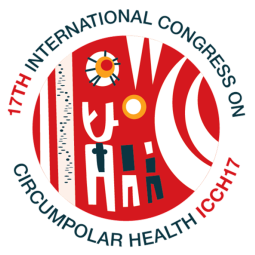 year in different locations in the circumpolar area and represent the largest scientific meetings worldwide on circumpolar health. The ICCH congresses serve as the primary source of information exchange and scholarly communication in issues relating to circumpolar health.
year in different locations in the circumpolar area and represent the largest scientific meetings worldwide on circumpolar health. The ICCH congresses serve as the primary source of information exchange and scholarly communication in issues relating to circumpolar health. 


